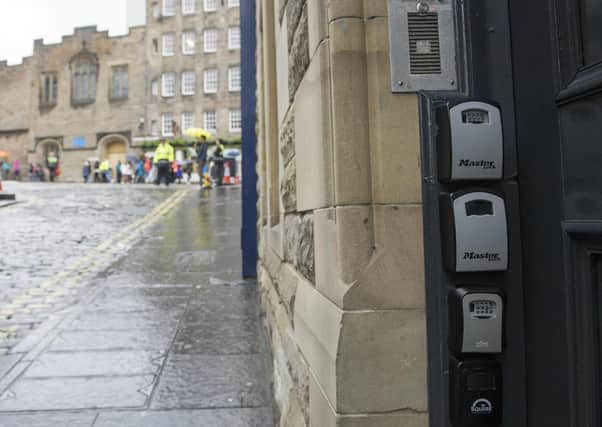Airbnb-style short-term lets should be regulated – leader comment


It started in San Francisco in 2008 after two people in their 20s wanted to travel to a conference but couldn’t afford the trip. So they decided to rent out three air mattresses on the floor of their apartment and serve breakfast. They made a simple website, airbedandbreakfast.com, and three people agreed to pay $80 each to stay. Brian Chesky and Joe Gebbia suddenly realised they were onto something big and invited a former flatmate, Nathan Blecharczyk, to help “change the way that people thought about travel”. And thus, Airbnb was born.
They could hardly have imagined just how dramatically this one simple, perfectly reasonable and decent idea would change not just travel but the shape of cities themselves. Airbnb and other similar firms have since helped millions of people to visit cities they might not otherwise have been able to see and millions of people make a little bit of extra cash.
Advertisement
Hide AdAdvertisement
Hide AdHowever, short-term lets have also been blamed for blighting city centres as serious investors realised more money could be made from such properties than long-term renting. Buy-to-let became buy-to-short-term let, driving up both house prices and rents in places like Edinburgh. Some tenement blocks have become dominated by holiday flats owned by absentee landlords, with all the associated problems and loss of community spirit. And an unfortunate few have found to their horror that their new ‘neighbours’ consist of wild stag parties every weekend.
Now a new report reveals only one in 477 short-term lets in Edinburgh has proper planning permission, with Green MSP Andy Wightman, who helped lead the study, condemning what he called a “staggering pattern of unlawful activity”.
The growth of short-term lets has produced benefits and problems. So it seems clear the best course of action is to try to keep the good and get rid of the bad.
Having a flexible source of accommodation is good for Edinburgh. It means the city does not need to build quite as many more hotels for tourists when life eventually returns to normal. And it means local people can get away in August while making some money by renting out their home to festival-goers. But clearly – and this is not something the Scotsman advocates lightly – greater regulation, perhaps in the form of a licensing scheme, is required to maintain a reasonable limit on numbers and curb the worst excesses.
A message from the Editor:
Thank you for reading this article on our website. While I have your attention, I also have an important request to make of you.
With the coronavirus lockdown having a major impact on many of our advertisers - and consequently the revenue we receive - we are more reliant than ever on you taking out a digital subscription.
Subscribe to scotsman.com and enjoy unlimited access to Scottish news and information online and on our app. With a digital subscription, you can read more than 5 articles, see fewer ads, enjoy faster load times, and get access to exclusive newsletters and content. Visit www.scotsman.com/subscriptions now to sign up.
Our journalism costs money and we rely on advertising, print and digital revenues to help to support them. By supporting us, we are able to support you in providing trusted, fact-checked content for this website.
Joy Yates
Editorial Director
Comments
Want to join the conversation? Please or to comment on this article.